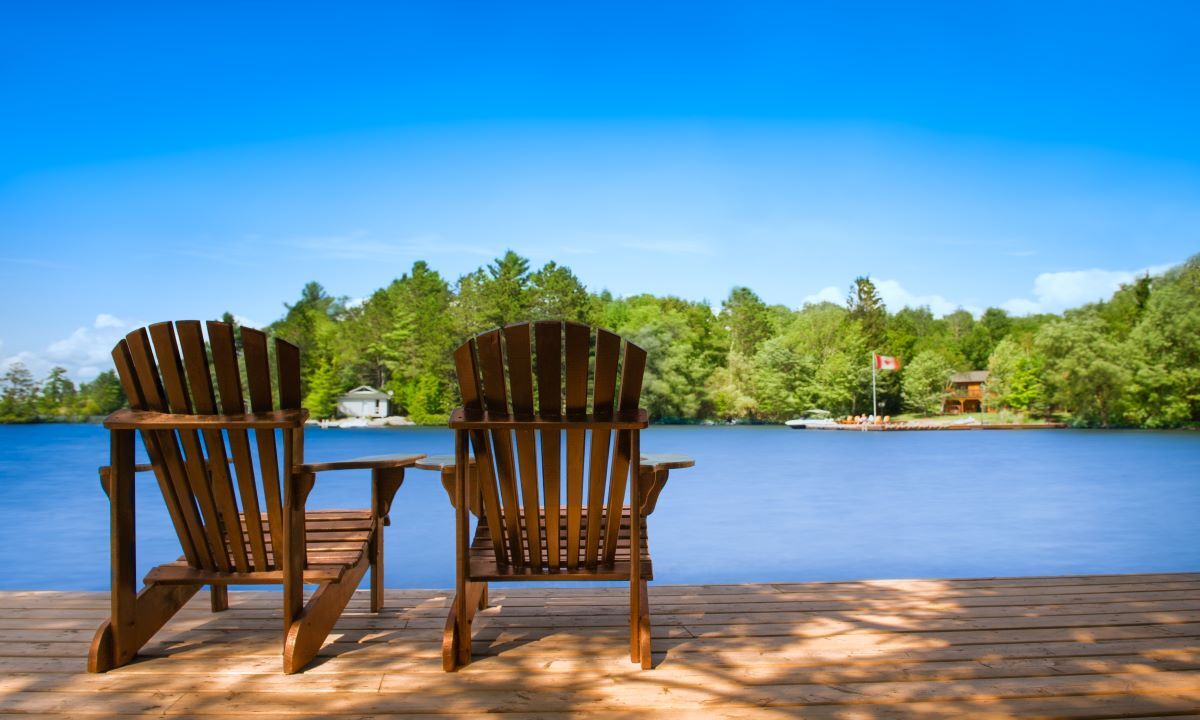Lately, many of us are looking for a change of pace – and for some, that means the dream of owning a cottage. Even with the housing market cooling, lower interest rates, a weak dollar and a surge in domestic travel are keeping the Canadian cottage market active, making this a great time to explore the possibility. Before you dive in, here are a few important things to consider when buying your perfect getaway.
1. Where do I want to buy?
Location is one of the top factors to consider when buying a vacation property. Are you looking for something a short drive away that’s easy to access on the highway? Perhaps your heart is set on something more remote and off the grid. Do you want to be on the water? Or are mountain trails a priority? Figuring out where you want to buy is one of the first and most important steps as you consider your vacation home purchase.
2. How much is it going to cost?
As you scroll through realty websites searching for the perfect vacation property that falls within your budget, don’t forget to consider the additional costs and fees that will come with ongoing ownership, such as property taxes, utilities, insurance, condo fees and maintenance. A general rule of thumb is that these costs could add 2–4% of the home’s purchase price, but this will, of course, vary based on the property’s type, age and size.
Don’t forget about capital gains tax
If you sell a second property like a cottage for more than you paid, you’ll likely owe capital gains tax. In Canada, 50% of the profit from the sale is taxable as income.
Example:
- You buy a cottage for $500,000
- You sell it later for $750,000
- The $250,000 difference is considered a capital gain
- Half of that – $125,000 – is added to your income and taxed accordingly
This only applies if the property is not your principal residence. Capital gains are reported on your personal tax return for the year the property is sold.
Tip:There are a number of financial and estate planning strategies that can be used to help you navigate the Capital Gains tax. Speaking with a financial advisor can help you understand your options.
3. How will I use my vacation home?
Will your property be a weekend retreat or a place you visit a few times a year? Are you thinking of hosting extended family gatherings regularly, or will it be a quiet getaway for you and your spouse? Do you plan to work remotely from there? Or maybe you want to rent it out when you’re not there or even make it an investment property. If that’s the case, you’ll have to weigh other considerations like rental income, property management, and local regulations around short-term rentals. Knowing how you intend to use your property can help you determine the type of home best for you.
4. How will my second property suit my lifestyle?
If you’re a busy professional with limited weekend time, you may not want your vacation property to be an ongoing DIY project that leaves little time for relaxation. If you have young kids and a large family, you may want a home that has room to grow with you. If you’re winding down your career, your vacation home may eventually become your retirement residence. Considering your current and (near) future lifestyle can help you narrow down your choice of home.
5. But what about my love of travel?
If regularly travelling someplace new is your priority – and you think owning a second home might get in the way of your globetrotting adventures – you may want to carefully consider whether buying a vacation property is right for you. What could be an idyllic getaway for families who prefer staying close to home could feel constraining to someone who loves taking trips and seeing new places. If you’re still sold on a second property, perhaps consider a place that doesn’t require consistent maintenance (e.g., a condo in a cottage community) or whether you’re comfortable renting it out to others to offset the costs.
Bringing it all home
A vacation property can be a wonderful investment, offering years of enjoyment, a place to truly unwind and a chance to create lasting memories. By asking yourself a few key questions, and with the right information and planning, you can decide whether buying makes sense for you and what kind of property will best suit your lifestyle.
We’re here to help
Speak with your financial professional or an RBC Healthcare Specialist.
This article is intended as general information only and is not to be relied upon as constituting legal, financial or other professional advice. A professional advisor should be consulted regarding your specific situation. Information presented is believed to be factual and up-to-date but we do not guarantee its accuracy and it should not be regarded as a complete analysis of the subjects discussed. All expressions of opinion reflect the judgment of the authors as of the date of publication and are subject to change. No endorsement of any third parties or their advice, opinions, information, products or services is expressly given or implied by Royal Bank of Canada or any of its affiliates.

















